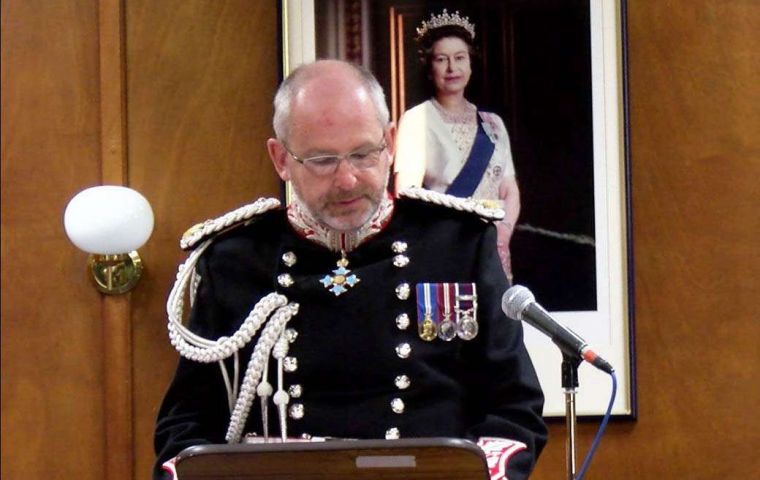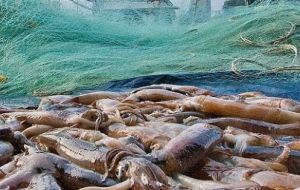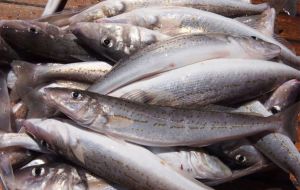MercoPress. South Atlantic News Agency
Falklands Governor: a “superb season” for Fisheries based on catch volumes
 Governor Nigel Phillips, CBE in the ceremonial suit addressing the Falklands' elected Legislative Assembly
Governor Nigel Phillips, CBE in the ceremonial suit addressing the Falklands' elected Legislative Assembly  The total Ilex catch was 153,000 tons, the best since 2015; Loligo also attained a record high for the first season, with more than 59,000 tons caught in two months
The total Ilex catch was 153,000 tons, the best since 2015; Loligo also attained a record high for the first season, with more than 59,000 tons caught in two months  2020 also saw a catch of 43,376 tons of hake, which is the second highest catch of the past decade. Good news all round”.
2020 also saw a catch of 43,376 tons of hake, which is the second highest catch of the past decade. Good news all round”. On June first Falklands governor Nigel Phillips CBE, delivered the annual address to the Islands Legislative Assembly on the budget for the new financial year. The following is the chapter on Fisheries and the “superb season”, based on the catch numbers.
The Governor said that as the largest contributor to the Falkland Islands Gross Domestic Product (GDP), fisheries remain a vital component of our economy. As such, this year, the government worked closely with fishing companies to ensure that vessels were able to operate safely and meet necessary COVID-19 public health requirements in order to protect our people, and which continues to be our primary concern.
“I am therefore pleased to report that our catch numbers were superb this season. The total Ilex catch was 153,000 tons, the best since 2015; Loligo also attained a record high for the first season, with more than 59,000 tons caught in two months, the same quantity as for the whole of 2020. 2020 also saw a catch of 43,376 tons of hake, which is the second highest catch of the past decade. Good news all round”.
The Governor added that tribute should also be paid to the efforts of the Department of Natural Resources, who worked with industry to develop innovative solutions to reduce by-catch, such as the compulsory introduction of discharge tanks for trawlers to reduce seabird interactions and net-binding trials. The team’s Marine Mammal Observer program is also working well and has seen mortality reduced to a negligible level.
”Work continues on implementing an early Individual Transferable Quota (ITQ) renewal process, with final policy matters due to be considered in the first quarter of the new financial year. Meanwhile, the approach to Ilex licence applications and allocation was adjusted for the 2021 fishing season, in order to align with national objectives and further develop the economic value of our fishery.
“Finally, the restructured Maritime Authority has recruited a new team, who will work closely with Fishops, to support shared oversight of activity in Falkland Islands waters. While both organizations were separated in order to facilitate regulatory independence, they will continue to collaborate on matters such as improved safety standards”.




Top Comments
Disclaimer & comment rulesCommenting for this story is now closed.
If you have a Facebook account, become a fan and comment on our Facebook Page!